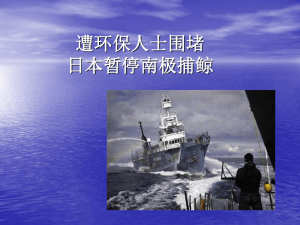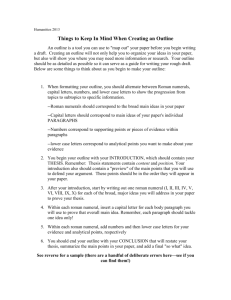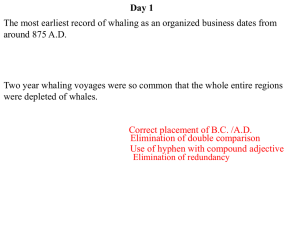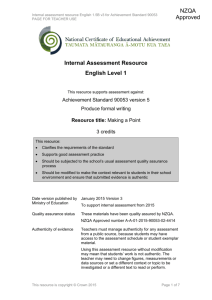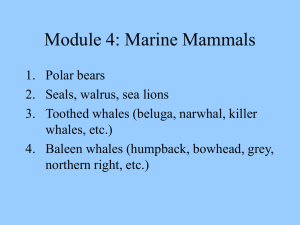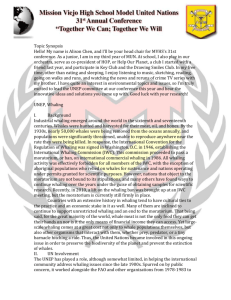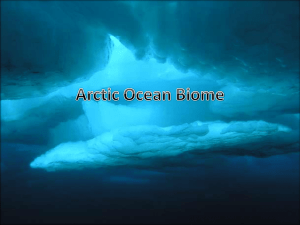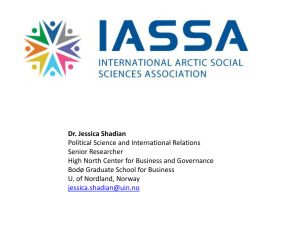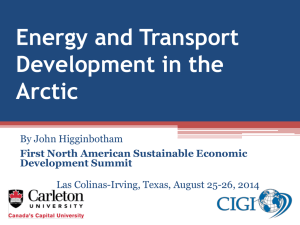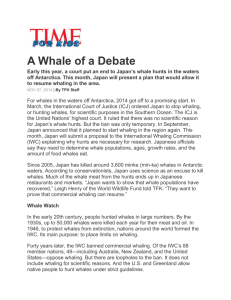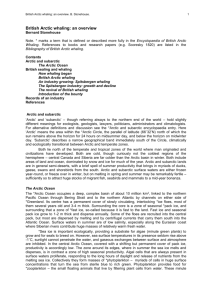Introduction given by Professor Michael Mainelli
advertisement
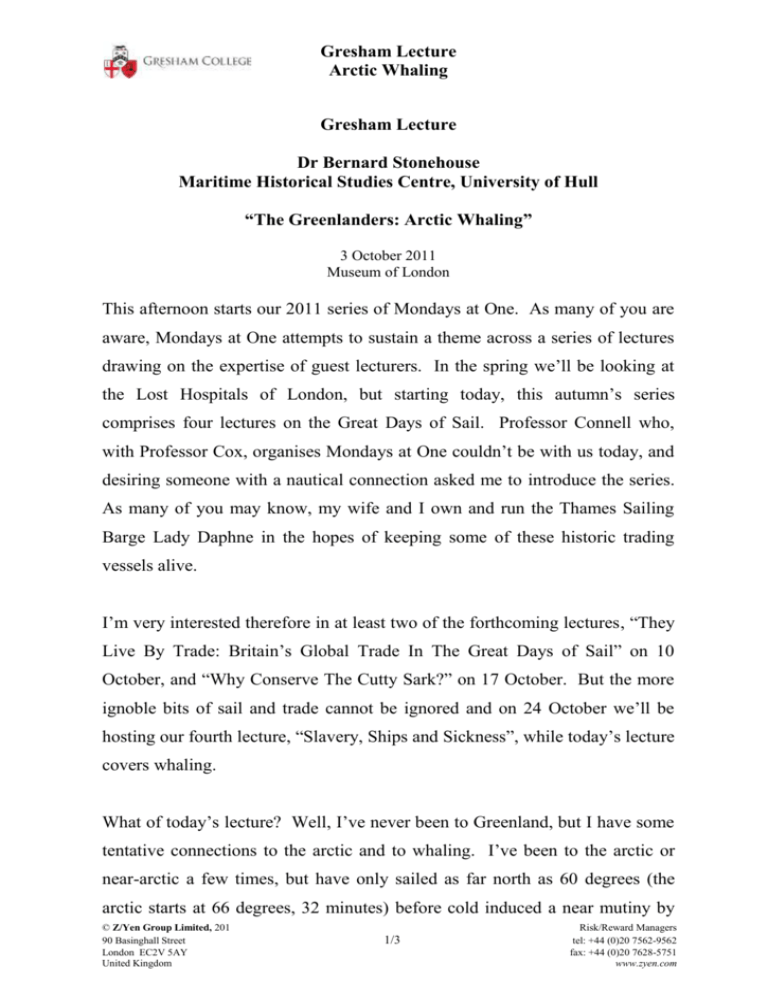
Gresham Lecture Arctic Whaling Gresham Lecture Dr Bernard Stonehouse Maritime Historical Studies Centre, University of Hull “The Greenlanders: Arctic Whaling” 3 October 2011 Museum of London This afternoon starts our 2011 series of Mondays at One. As many of you are aware, Mondays at One attempts to sustain a theme across a series of lectures drawing on the expertise of guest lecturers. In the spring we’ll be looking at the Lost Hospitals of London, but starting today, this autumn’s series comprises four lectures on the Great Days of Sail. Professor Connell who, with Professor Cox, organises Mondays at One couldn’t be with us today, and desiring someone with a nautical connection asked me to introduce the series. As many of you may know, my wife and I own and run the Thames Sailing Barge Lady Daphne in the hopes of keeping some of these historic trading vessels alive. I’m very interested therefore in at least two of the forthcoming lectures, “They Live By Trade: Britain’s Global Trade In The Great Days of Sail” on 10 October, and “Why Conserve The Cutty Sark?” on 17 October. But the more ignoble bits of sail and trade cannot be ignored and on 24 October we’ll be hosting our fourth lecture, “Slavery, Ships and Sickness”, while today’s lecture covers whaling. What of today’s lecture? Well, I’ve never been to Greenland, but I have some tentative connections to the arctic and to whaling. I’ve been to the arctic or near-arctic a few times, but have only sailed as far north as 60 degrees (the arctic starts at 66 degrees, 32 minutes) before cold induced a near mutiny by © Z/Yen Group Limited, 201 90 Basinghall Street London EC2V 5AY United Kingdom 1/3 Risk/Reward Managers tel: +44 (0)20 7562-9562 fax: +44 (0)20 7628-5751 www.zyen.com Gresham Lecture Arctic Whaling my crew in the Shetlands near Unst – and that was in the summer - but that’s another story. I’m on firmer ground on whaling, as I’m involved with two organisations trying to help whales. The first is Ocean Alliance, founded by Dr Roger Payne, who popularised humpback whale songs in the 1960s and 1970s, and inspired my undying love of Kate Bush’s music. In November 2008 Roger presented a performance of “Sea Change” at Gresham College with his wife Lisa Harrow. My second organisation is the International Fund for Animal Welfare which co-hosted Sydney Holt’s challenging 2008 Gresham lecture, “Shall Future Generations Eat Fish Or Whales?” Today Dr Stonehouse is going to help us explore our history. In 1576 the Muscovy Company was awarded a monopoly to kill whales. While the 35 tonne Grace of Bristol went to Newfoundland in 1594 to trade whale products with the Basque, it wasn’t until 1611 that the Moscovy Company’s first whaling expedition set sail. Whaling today seems repugnant and uncivilised to many, but Dr Stonehouse’s British Arctic Whaling website reminds us: “Few today regret the end of British whaling; fewer still would want to see it revived or encouraged in any form. For all its products there are now reasonable alternatives, and most nations agree that whaling is no longer needed. This was not the case in the 16th to mid-19th centuries, or even in the early 20th century when British whaling finally ceased. To judge whalers of those times by standards of today makes no sense at all. If we seek to judge, we must in fairness know more of the circumstances in which they worked.” Whaling, particularly in the arctic, was tough and dangerous, and many ships were lost. As a professor of commerce, I have to ask – why did people risk so much, what did they gain, why did they stop? To answer those questions and © Z/Yen Group Limited, 201 90 Basinghall Street London EC2V 5AY United Kingdom 2/3 Risk/Reward Managers tel: +44 (0)20 7562-9562 fax: +44 (0)20 7628-5751 www.zyen.com Gresham Lecture Arctic Whaling tell us about the circumstances in which whalers worked, would you please welcome Dr Bernard Stonehouse. © Z/Yen Group Limited, 201 90 Basinghall Street London EC2V 5AY United Kingdom 3/3 Risk/Reward Managers tel: +44 (0)20 7562-9562 fax: +44 (0)20 7628-5751 www.zyen.com
